A) BACKGROUND
The inaugural National Symposium on the Prevention of Violent Extremism through Education 2019 (NSPVE-E 2019) was organised with the support from the Malaysian National Commission for UNESCO (NatComm) and in collaboration with Iman Research. The overarching theme of the symposium is “Building the Culture of Peace and Non-Violence through Education”, to reiterate the importance of education as one of the tools to mitigate and prevent violent extremism. The theme is also to reaffirm the importance of education in preventing violent extremism emphasised in one of the targets of SDG4-Education 2030 Target 4.7 on Educational for Sustainable Development (ESD) and Global Citizenship Education (GCED) framework to equip learners, of all ages, and notably young women and men, with the knowledge, values, attitudes and behaviours, which foster responsible global citizenship, critical thinking, empathy and the ability to take action against violent extremism.
In recent years the role education in preventing violent extremism and de-radicalisation has been gaining momentum and global acceptance. A significant step towards this direction was the launch of the United Nation Secretary-General’s Plan of Action to Prevent Violent Extremism in December 2015 which recognises the importance of education to address factors that lead to violent extremism and radicalisation. Hence, the symposium reaffirms Malaysia’s commitments and support to the United Nations Plan of Action to Prevent Violent Extremism and the ASEAN Plan of Action to Prevent and Counter the Rise of Radicalisation and Violent Extremism.
The organisation of this symposium was also an ideal platform for participants to share good practices, recommend intervention strategies to prevent and address violent extremism focusing on youths as they are easily influenced and most at risk. NSPVE-E 2019 had enhanced the resource network as well as expertise across different sectors in identifying and examining concrete and comprehensive education sector responses to the threats of violent extremism and discussed how education and its stakeholders can commit in preventing violent extremism in a systematised manner.
B) OBJECTIVES
The objectives of the symposium are to:
i. Identify the driving factors of violence and extremism among youths and children;
ii. Share best practices among participating agencies on the prevention of violence and extremism through education;
iii. Develop prevention and intervention strategies of violent and extremist acts among youths and children;
iv. Identify collaborative networks between participating agencies and other international agencies in the prevention of terrorism and extremism through education; and
v. Explore opportunities to promote and achieve the model of “learning to live together by building a culture of peace through education”.
C) ORGANISER
The Educational Planning and Research Division (EPRD), Ministry of Education was the main secretariat of this symposium. IMAN Research was also selected as the strategic partner for this symposium. This symposium was funded by the Malaysian National Commission for UNESCO.
D) PROGRAMME DETAILS:
Date : 5 – 6 November 2019
Venue : Parkroyal Hotel, Kuala Lumpur
E) PARTICIPANTS
A total of 139 participants attended the symposium. The breakdown of the participants (including secretariat and committee) is as follows:
Organisation/Institution Numbers
Students from IPG/ universities/ Matriculation colleges/ Form 6 colleges – 65
School teachers and school leaders – 18
Government agencies – 18
International agencies, developing partners, NGOs – 12
Secretariat/ Committee (BPPDP, IMAN Research, BSTP, BMH) – 26
Total – 139
Registration of participants
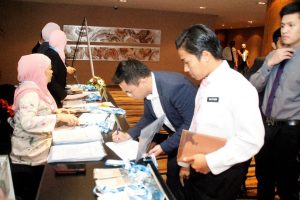
Registration of speakers
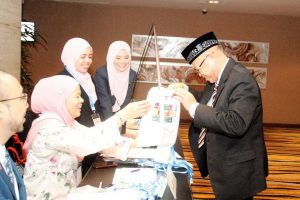
F) SPEAKERS AND AGENDA
A total of 25 speakers from various local and international organisations/institutions were invited to the symposium. There were ten sessions in total. The sessions included keynote addresses, plenaries and sharing session. The opening keynote was presented by Professor Greg Barton from Deakin University, Australia and the concluding keynote by Dr Maszlee bin Malik, Minister of Education, Malaysia.
Welcoming remarks by Madam Rohayati Abd Hamed, Senior Deputy Director of Educational Planning and Research Division (EPRD)
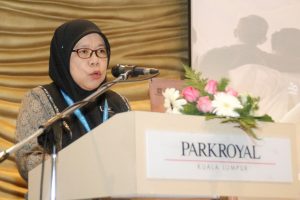
Session 1: Keynote address by Prof Greg Barton
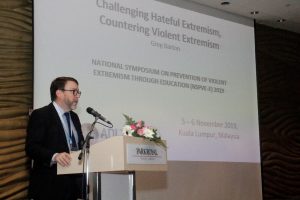
Plenary session 1: Values and skills-based education, an essential tool for culture of peace and non-violence (including q&a session)
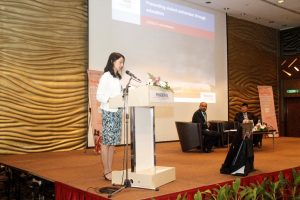
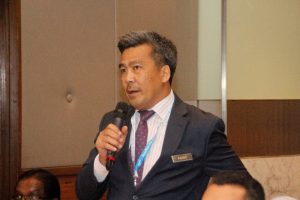
Sharing session 1:
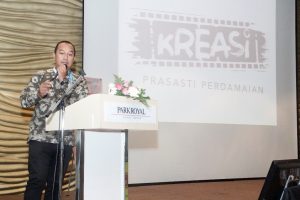
Plenary II: Roles of civil society and community in promoting the culture of peace and non-violence amongst youth (including q&a)
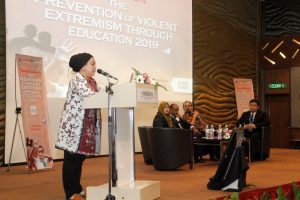

Sharing session II:
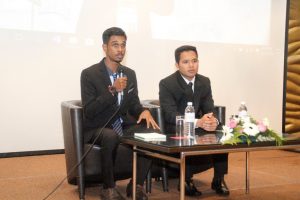
Reflection activity:
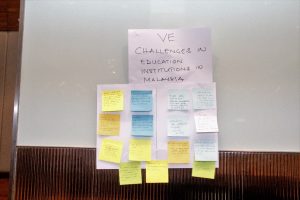
Overview of the day
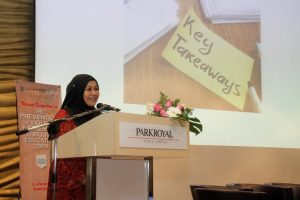
Plenary III: ICT and social media as an effective prevention of violent extremism tool
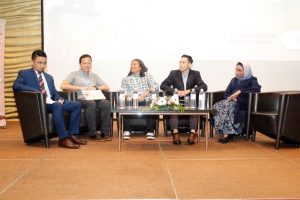
Participants listening attentively
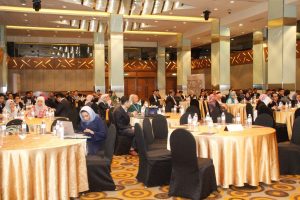
Plenary IV: Regulatory and resilience: roles of governments, NGOs and other stakeholders in promoting inclusive development, tolerance and respect for diversity
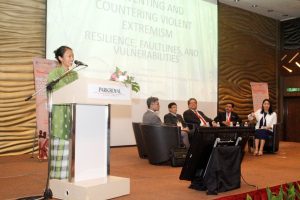
Presentation of research findings 1
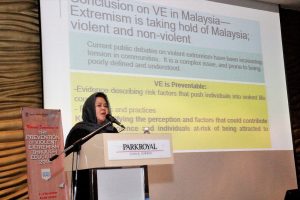
Presentation of research findings q & a

Closing ceremony and keynote session 2 by YB Menteri Pendidikan

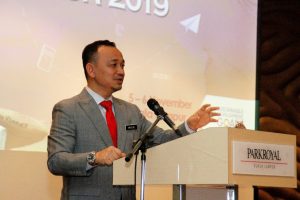
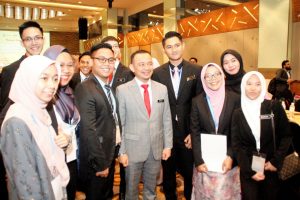
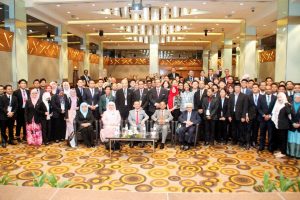
G) SYMPOSIUM EVALUATION
Participants were asked to evaluate the overall effectiveness of the symposium by responding to questions pertaining to the effectiveness of the sessions, delivery and knowledge of the speakers and moderators and how useful the sessions were to them. The majority of the participants (93%) found the sessions were helpful to them in terms of the content and information that they were exposed to. Their positive response could be attributed to the delivery of the sessions by the respective speakers, whereby 92% of the participants felt that the content of the sessions was effectively delivered by the speakers. This also indicates the speakers’ ability to communicate the key points in each of the sessions which succeeded in retaining participants’ interest throughout their presentations. Consequently, participants were able to engage with presenters during the question and answer sessions at the end of each session. The fact that 94% of participants considered the speakers and moderators knowledgeable is another factor that could be attributed to their positive response to the sessions.
Participants were also asked any aspects of the symposium that could be improved. Some participants felt that the length of the symposium could be extended by another day. This would able for better interactive sessions between speakers and participants. Some of the participants also indicated that sharing session should involve local presenter with relevant background and had the experience of being involved in violent extremism. Nonetheless, majority of the participants believed that the organisation of the symposium had improved their understanding on the prevention of violent extremism through education.
H) CONCLUSION
As a conclusion, the organizer believes that the symposium was organized successfully. The symposium highlighted the importance for education institutes to provide a safe space to nurture and empower youth today as agents of positive change through skills development, training and new forms of engagement so that their voices are heard for better national youth policies in the government to ensure sustainable, just and peaceful community. The fundamentals of Global Citizenship Education under the Sustainable Development Goal 4 – Education 2030 which is the 21st century approach to living to address global challenges, have to be seriously and strategically applied within the education framework so that the attributes of learners with values, soft skills and attitudes for social transformation are effectively translated in the teaching and learning processes






